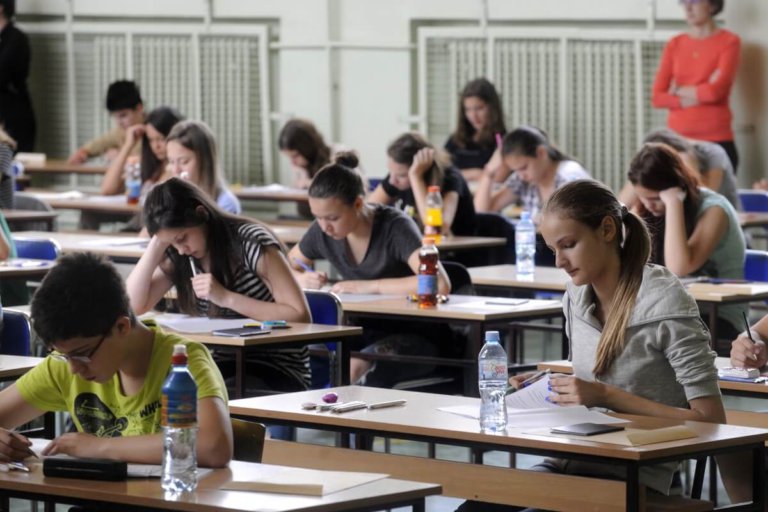
The European Union (EU) has agreed to extend the Brexit deadline to January 31, 2020, but Brexit is still set to affect private schools – including international schools – in the UK as companies look to relocate staff outside of London and the UK.
Schools in Europe – including those in Paris, Frankfurt, Zurich and Amsterdam – are expected to benefit from an influx of student enrollment as result. For instance, a 2017 Reuters report said many banks had announced they would be relocating some of their EU operations to Frankfurt, sparking anticipation for a throng of student enrollments in the area.
Deutsche Bank has reportedly been block-booking hundreds of international school places in Frankfurt in anticipation of its staff’s relocation. Waiting lists for popular schools are said to have reached capacity.
While schools across countries offer varied curriculums, parents who are looking to enrol their child in an international school will find that their common curricula can include the American, British and Canadian curriculums. This is in addition to programmes that prepare students for entry into university, such as the renowned International Baccalaureate Diploma Programme (IBDP).
In some instances, the German International Baccalaureate (Gemischtsprachige International Baccalaureate, GIB) and the French Baccalaureate are also offered, with some schools running these curriculums concurrently, while others allow students to graduate with bilingual diplomas.
As there are many types of baccalaureates available in schools worldwide, how do you decide which one is right for your child? For parents who are unfamiliar with the types of baccalaureates available in different countries, here’s an overview of what they entail:
International Baccalaureate Diploma Programme
10 memes everyone taking the International Baccalaureate @IB_DP will identify with https://t.co/7qcb5xB8US pic.twitter.com/szShhTqpmL
— Study International (@Study_INTNL) January 15, 2019
The IBDP is an internationally recognised two-year programme that is open to any student aged 16 to 19. The programme is known to be challenging, and is recognised and respected by many of the world’s leading universities.
Under the programme, students will study disciplines from six subject groups: Language and Literature, Language Acquisition, Individuals and Societies, Sciences, Mathematics and The Arts.
This is in addition to the mandatory DP core: Theory of Knowledge (TOK), a course assessed through an oral presentation and a 1600 word essay; an Extended Essay, which encourages independent research skills; and the Creativity, Action, Service (CAS), which involves students in a range of activities alongside their academic studies.
Gemischtsprachige International Baccalaureate
The GIB is a bilingual IB diploma in English and German that includes three subjects taught and assessed in German: History, Biology and either Language A or Language B. Students also have the chance to take TOK in German.
The GIB is recognised by the German Kultusministerkonferenz (KMK) as equivalent to the German Abitur. Some international schools, such as the Institut auf dem Rosenberg, offer students the chance to graduate in this certification.
The French Baccalaureate
▶️ France’s baccalaureate: The hardest high school exam in the world? https://t.co/jhIDsgkSCJ pic.twitter.com/nkDz22O9gJ
— FRANCE 24 English (@France24_en) June 20, 2019
The French Baccalaureate – known colloquially as “le Bac” in France – is a diploma that culminates in an extensive, national examination taken at the end of “lycée” or high school. This demanding pre-university programme is taught entirely in French, and is a required qualification for students pursuing higher education in France.
France 24 notes that students can choose from three types of baccalaureate:
- Professional (prepares students for a wide range of professions – carpentry, baking, dentistry, etc.)
- Technological (focuses more on science and computers)
- General (more academic, generally taken by most students)
Students who opt for the general baccalaureate choose one of three specialised streams or tracks: scientific, socio-economic and literature. Regardless of their specialisation, students are examined on a wide range of subjects as they study French, history, geography, a foreign language, philosophy, maths and science.
internationalschoolsearch.com notes: “Students not wishing to go on to higher education can, in theory, opt out of taking the baccalaureate and those who do not have one can instead take the higher education entrance exam, which leads to its own diploma.”
The European Baccalaureate
According to Schola Europaea (European Schools), the EB diploma certifies a students’ completion of secondary studies in a European School or in a School Accredited by the Board of Governors. It’s officially recognised as an entry qualification for higher education in EU countries, and several other countries.
“European Baccalaureate diploma holders enjoy the same rights and benefits as other holders of secondary school-leaving certificates in their countries, including the same right as nationals with equivalent qualifications to seek admission to any university or institution of tertiary education in the EU,” notes Schola Europaea.
The Welsh Baccalaureate
Welsh Baccalaureate could be a rewarding qualification if delivered effectively, finds @SeneddCYPE https://t.co/fQGN6dBD8q pic.twitter.com/xl0q1PaZm5
— Assembly Wales (@AssemblyWales) July 3, 2019
Despite being a “divisive qualification in Wales”, the Welsh Baccalaureate is a Wales-only qualification. The certification aims to give students broader experiences than traditional learning programmes to suit the diverse needs of young people.
The Welsh Bacc award is said to be wide-ranging, and embraces the teaching of key skills that complement the subjects and courses already available for learners.
The Welsh Bacc offers three levels:
- Foundation (Level 1)
- National (Level 2)
- Advanced (Level 3)
At every level, it comprises multiple elements and is achieved on the successful completion of the Skills Challenge Certificate (SCC) and the required level of attainment in supporting qualifications. The SCC is a standalone, graded qualification and is valued as a GCSE or A Level equivalent, or it can be taken alongside GCSEs or A Levels, notes the Welsh Government.
It consists of four components that aim to equip students with the essential employability skills needed in their future lives.
“The skills, attributes and behaviours that are developed through the SCC are greatly valued by universities. The Advanced SCC can help students to gain entry to higher education,” it said.
Liked this? Then you’ll love…
Most and least expensive cities in the world for international schools
These are some of the most expensive boarding schools in Switzerland







